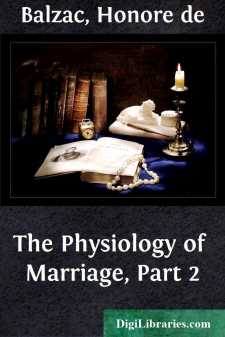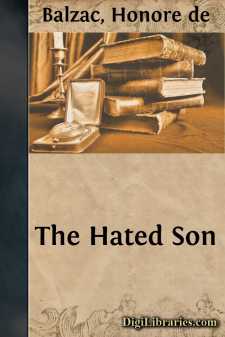Categories
- Antiques & Collectibles 13
- Architecture 36
- Art 48
- Bibles 22
- Biography & Autobiography 813
- Body, Mind & Spirit 142
- Business & Economics 28
- Children's Books 17
- Children's Fiction 14
- Computers 4
- Cooking 94
- Crafts & Hobbies 4
- Drama 346
- Education 46
- Family & Relationships 57
- Fiction 11829
- Games 19
- Gardening 17
- Health & Fitness 34
- History 1377
- House & Home 1
- Humor 147
- Juvenile Fiction 1873
- Juvenile Nonfiction 202
- Language Arts & Disciplines 88
- Law 16
- Literary Collections 686
- Literary Criticism 179
- Mathematics 13
- Medical 41
- Music 40
- Nature 179
- Non-Classifiable 1768
- Performing Arts 7
- Periodicals 1453
- Philosophy 64
- Photography 2
- Poetry 896
- Political Science 203
- Psychology 42
- Reference 154
- Religion 513
- Science 126
- Self-Help 84
- Social Science 81
- Sports & Recreation 34
- Study Aids 3
- Technology & Engineering 59
- Transportation 23
- Travel 463
- True Crime 29
Modeste Mignon
by: Honore de Balzac
Categories:
Description:
Excerpt
CHAPTER I. THE CHALET
At the beginning of October, 1829, Monsieur Simon Babylas Latournelle, notary, was walking up from Havre to Ingouville, arm in arm with his son and accompanied by his wife, at whose side the head clerk of the lawyer's office, a little hunchback named Jean Butscha, trotted along like a page. When these four personages (two of whom came the same way every evening) reached the elbow of the road where it turns back upon itself like those called in Italy "cornice," the notary looked about to see if any one could overhear him either from the terrace above or the path beneath, and when he spoke he lowered his voice as a further precaution.
"Exupere," he said to his son, "you must try to carry out intelligently a little manoeuvre which I shall explain to you, but you are not to ask the meaning of it; and if you guess the meaning I command you to toss it into that Styx which every lawyer and every man who expects to have a hand in the government of his country is bound to keep within him for the secrets of others. After you have paid your respects and compliments to Madame and Mademoiselle Mignon, to Monsieur and Madame Dumay, and to Monsieur Gobenheim if he is at the Chalet, and as soon as quiet is restored, Monsieur Dumay will take you aside; you are then to look attentively at Mademoiselle Modeste (yes, I am willing to allow it) during the whole time he is speaking to you. My worthy friend will ask you to go out and take a walk; at the end of an hour, that is, about nine o'clock, you are to come back in a great hurry; try to puff as if you were out of breath, and whisper in Monsieur Dumay's ear, quite low, but so that Mademoiselle Modeste is sure to overhear you, these words: 'The young man has come.'"
Exupere was to start the next morning for Paris to begin the study of law. This impending departure had induced Latournelle to propose him to his friend Dumay as an accomplice in the important conspiracy which these directions indicate.
"Is Mademoiselle Modeste suspected of having a lover?" asked Butscha in a timid voice of Madame Latournelle.
"Hush, Butscha," she replied, taking her husband's arm.
Madame Latournelle, the daughter of a clerk of the supreme court, feels that her birth authorizes her to claim issue from a parliamentary family. This conviction explains why the lady, who is somewhat blotched as to complexion, endeavors to assume in her own person the majesty of a court whose decrees are recorded in her father's pothooks. She takes snuff, holds herself as stiff as a ramrod, poses for a person of consideration, and resembles nothing so much as a mummy brought momentarily to life by galvanism. She tries to give high-bred tones to her sharp voice, and succeeds no better in doing that than in hiding her general lack of breeding. Her social usefulness seems, however, incontestable when we glance at the flower-bedecked cap she wears, at the false front frizzling around her forehead, at the gowns of her choice; for how could shopkeepers dispose of those products if there were no Madame Latournelle?...












